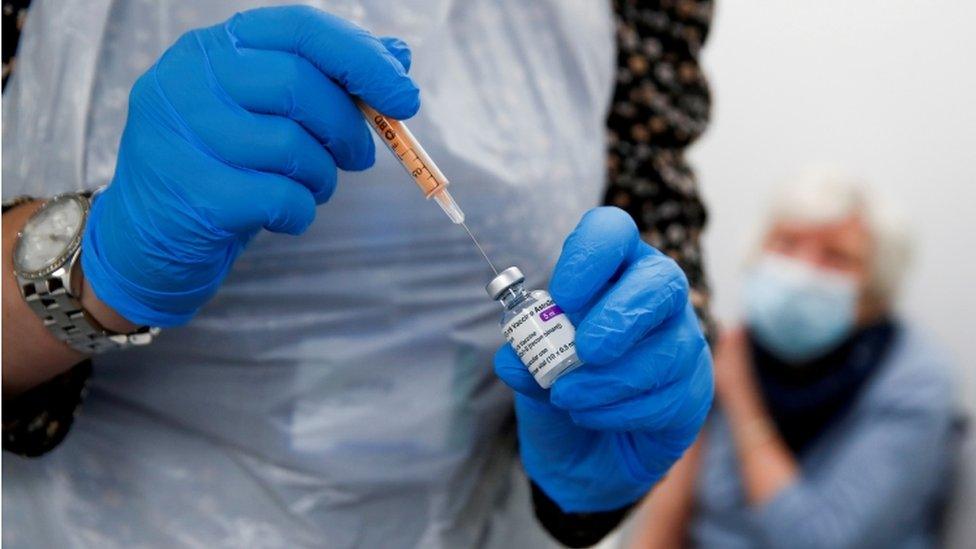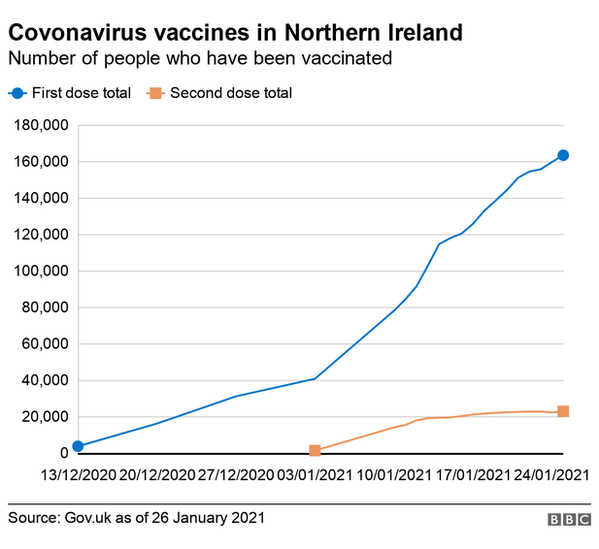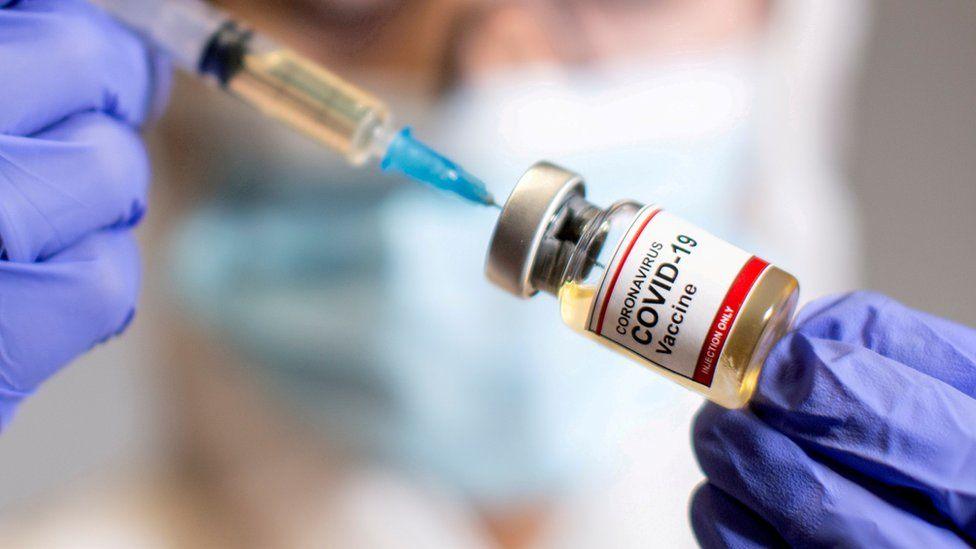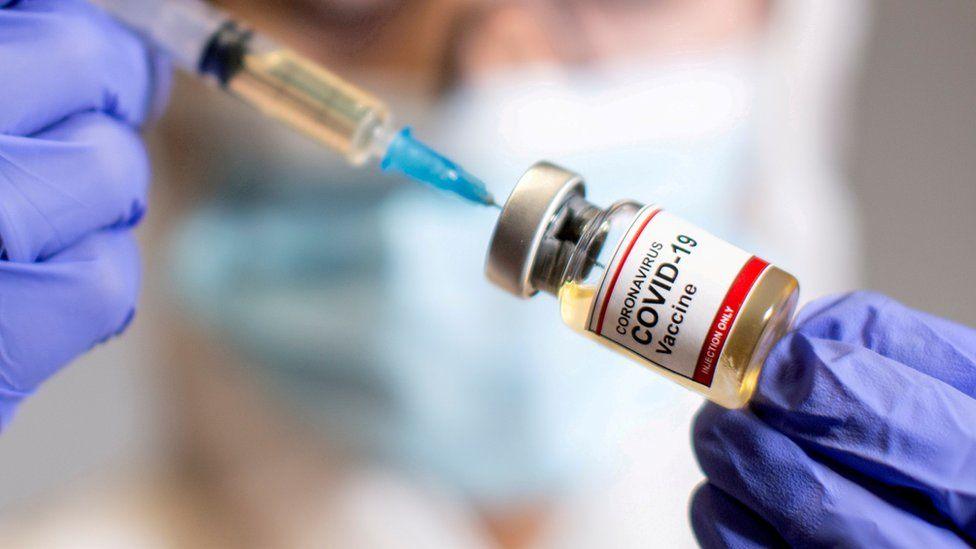Covid-19: 'Significant supply' of vaccine to arrive in NI next week
- Published

Another "significant supply" of the Oxford-AstraZeneca Covid-19 vaccine is to arrive in Northern Ireland next week, the health department has said.
That will allow GPs to invite more people aged 70 and over to attend their nearby surgery to be vaccinated.
It comes as the first minister revealed that the new variant, the Kent variant, is believed to account for between 40 and 50% of all cases of Covid-19.
It may account for up to 60% of cases in the Southern Trust area.
The new coronavirus variant was first detected in Kent in September. It is now the most common form of the virus in England and Northern Ireland, and has spread to more than 50 other countries.
Vaccination
In what is described as a "twin-track" approach, the vaccination of people in the 65-69 age group began on Thursday.
It is happening at seven regional vaccination centres where the Pfizer-BioNTech vaccine is used.
Stormont's Department of Health hopes to offer jabs to all over-65s in Northern Ireland by the end of February.

The move means a younger and fitter cohort of people may receive their vaccine sooner than those who are older and perhaps have underlying health conditions.
A global demand for the vaccine means supplies are limited.
The Department of Health said it needs to vaccinate as many people as quickly as possible in line with clinical priority.
"And we need to make best use of available supplies of both vaccines," it said.

'Vaccination programme massively complicated'

The online booking system - which opened on Wednesday night for those aged between 65 to 69 - is running more smoothly after some early technical difficulties.
However, it has prompted some people to ask why those who are younger are being vaccinated sooner than older people.
Rolling out the vaccine is a massively complicated process.
There are many hurdles for those in charge of it, including the fact that the Pfizer-BioNTech and Oxford-AstraZeneca vaccines have separate requirements and separate locations.
They cannot be mixed and matched.

The department has said that in order to maximise current stocks "there had to be some demarcation on who gets what vaccine".
More people in their 70s will have accessibility issues so being able to receive their vaccination from their nearest GP surgery has obvious advantages for them.
People who are clinical extremely vulnerable (CEV) to Covid-19 are also a priority for February and GPs will be vaccinating a large proportion of CEV patients.
The twin-track approach will mean trust vaccination centres will offer vaccines to CEV patients who frequently attend hospitals.
Until this week, only healthcare workers have been vaccinated at those locations.
Online slots are available on Health and Social Care Northern Ireland's Covid-19 website, external.
This is how Northern Ireland compares with Great Britain and the Republic of Ireland by overall population, based on first doses:
Northern Ireland - 8.9% of population vaccinated
England - 11.1% of population vaccinated
Scotland - 8.4% of population vaccinated
Wales - 10% of population vaccinated
Republic of Ireland - 2.9% of population vaccinated
Meanwhile, a paper from the Department of Health on Northern Ireland's R number said results from genomic sequencing of the Kent variant suggest it is becoming more common in Northern Ireland.
It said this may mean, under conditions of increased inter-personal contact in the future, the epidemic may grow more quickly than previously thought.
The Director of Medical Services at the Southern Trust said the new variant was just one of the reasons cases in that area are so high, with things like shared housing also being a factor.
Related topics
- Published27 January 2021

- Published26 January 2021

- Published28 January 2021
